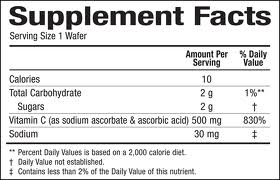In these modern times, it has become increasingly rare for people to eat balanced and nutritious meals daily. In order to meet the demands of our fast paced lives, we seek fast solutions to meet our daily requirements for food and nutrition. Often we grab whatever convenient package of food we can find and run out the door instead of sitting down to a balanced home cooked meal.
At other times, we go through a drive thru to suffice our hungry bellies. There are even days when we are so busy that it becomes nearly impossible to stop and eat. This leaves us undernourished and lacking essential vitamins and nutrients.
Just as packaged and processed food became the perceived solution to busy lives, multivitamins are quickly becoming what people reach for in order to increase the essential vitamins and nutrients that “fast” food lacks. The sources of mainstream health information support the notion that we should be taking multivitamins daily to enhance our well-being and make up for incomplete nutrient intake.
 On the surface, this seems like reasonable advice and it may be IF you are taking the right multivitamins. Through further investigation of multivitamins, it is clear that not all multivitamins are helping your body and many that you believe are healthy, could be detrimental.
On the surface, this seems like reasonable advice and it may be IF you are taking the right multivitamins. Through further investigation of multivitamins, it is clear that not all multivitamins are helping your body and many that you believe are healthy, could be detrimental.
The reason for this is that not all multivitamins are created equally. Currently, there are numerous brands and blends of multivitamins available but there are generally two different ways they are manufactured…using either synthetic vitamins or natural vitamins made from real, whole foods.
The most common types of multivitamins available and prescribed in the mainstream health industry are synthetic multivitamins. These are the bad guys.
Synthetic Multivitamins
First of all, the vitamins that make up these multivitamin formulas are mere isolated components of their naturally occurring counterparts. This is important because our bodies are not made for using vitamins in isolation, but instead are meant to have vitamins and other minerals working together to create a balanced effect. Therefore, when you take a synthetic multivitamin made up of many singular parts of each vitamin, your body must make up the difference in order to derive any effect from the vitamins.
This is especially problematic if your body is lacking any of the other components necessary to utilize the vitamin. If this is the case, it will simply eliminate the isolated component after it is processed through your system.
Often these synthetic vitamins have beneficial effects when you first begin taking them, but only because your body may have stored the other components necessary for this interaction. But this will not last long and soon those synthetic supplements will have further depleted your system of important nutrients. In other words, when you take synthetic vitamins you are either causing your body to use up precious reserves of vitamins in order to absorb them or you are wasting your time and money and deriving no benefit whatsoever.
But that’s not all…Synthetic vitamins are often made with toxic substances! Some common substances used to create synthetic vitamins are petroleum extracts, sodium selenite, coal tar derivatives, and hydrogenated sugar. These substances would never be recommended by a health care expert as a part of a nutritious diet. Yet, they are commonly ingested by the millions who take vitamin supplements as per recommendations from these aforementioned experts. When taken in large doses, or over a long period of time, these synthetic substances may even cause cancer and other diseases, which is the opposite of why people take them.
It’s a misrepresentation for manufacturers to even refer to these synthetic substances as “vitamins” because they are not complete in their structure like true vitamins found in nature. Synthetic is often defined as something that is artificial or manmade while the definition of vitamin is a group of organic compounds found in nature and essential to the growth and nutrition of a healthy human. There’s really very little difference in eating chemical laden processed foods and taking toxic synthetic multivitamins, and you will certainly not be able to counteract the effects of a bad diet with equally bad vitamin supplements.
Yet, the idea behind taking multivitamins in order to supplement the lack of minerals in your diet is not futile. I mentioned that there are also natural vitamins produced from real foods found in nature. Let’s take a closer look at these.
Natural whole food vitamins are actually made from the concentrated whole food that contains the vitamin and all of the important components needed by the body in order to derive the positive benefits. These whole food vitamins will provide certain nutrients that you may not get from your daily food intake. They will not deplete your body of other nutrients when you take them because they are whole, just as the name states.
How to Identify the Source of Your Multivitamins
You can identify high-quality, whole food vitamins and supplements by looking closely at the ingredients on the label. You want to find products that use whole foods and you want them in their most natural state. The less it is processed and refined, the better the quality of the product.
Often you can tell if the vitamins are made from food by a label that reads “100% Food” or by finding the “food source” list on the label because if the vitamin is made from food it will say so. If you want to identify specific whole food vitamins, you can look on the label to find foods containing those vitamins. An example would be finding acerola cherry powder or any citrus fruits on the ingredients of a supplement containing vitamin C. If the ingredients list mentions carrots, then you know you have a food source of vitamin A! Whole food multivitamins should have yeast, therefore do not buy any that say they contain no yeast because it will be synthetic.
It is also beneficial to know the different names for the chemicals that make up food vitamins and non-food vitamins. In foods containing vitamin C the primary chemical is ascorbate, but in synthetic vitamins this is referred to as ascorbic acid or sodium ascorbate.
Here’s an example of a vitamin C that derived from sodium ascorbate –

Also, vitamin A/betacarotene is called retinyl esters or mixed carotenoids in whole food form, but called acetate or palmitate on the label of synthetic vitamin A. When you see words such as acetate or chloride, or any words ending in “ate” or “ide,” this means the vitamins are synthetic because they are made using different forms of salt in order to increase the stability of the vitamins. Take note if you see “dl” in front of an ingredient because this always means that the vitamin is synthetic.
Vitamins to avoid may state on the label that they have ‘pharmaceutical grade nutrients’ or that they contain USP vitamins. If you see words on the label of a multivitamin that you do not recognize and there is no list of foods that provide the vitamins, put it back on the shelf. Vigilantly inspect labels in order to navigate through the deceptive world of synthetic vitamins to find whole food vitamins that will benefit your health and not waste your money or do harm to your body.
Do not be fooled by the word “natural” on vitamins and supplements. This word is not regulated. This is also a good rule to know for any food you buy that has the word natural on the packaging.
There may be some natural components to these products, but the word is used as a marketing scheme for companies to convince people their products are healthy and safe choices. And, unfortunately, this is often not the case.
In addition to whole food vitamins and supplements, the best way to receive the nutrients to keep your body healthy is to include whole organic foods in your diet. These will provide the vitamins your body needs from your daily meals. If you eat nutrient rich whole foods you will have to spend less time worrying about what vitamins to take. It’s great to supplement your diet with whole food vitamins based on individual needs rather than as a way to make up for not eating healthful foods.
Another recommended way to get all the necessary vitamins via a natural way is by getting Energize Max. Energize Max is a green superfoods mixture that is formulated to give you maximum nutrition and nutrients.
Click on this link to find out more about Energize Max >> Energize Max
About the Author:
Emma Deangela is the best selling author of The Alkaline Diet Program and 80/20 Fat Loss. She has helped over tens of thousands of men and women to lose weight and transform their health with sound nutrition advice.
Which wonderful friends in your life are consuming multivitamins but are not aware of the truths about multivitamins?
Please help them by sharing this eye-opening article with each of them using any of the social media and email buttons below.

Leave a Reply